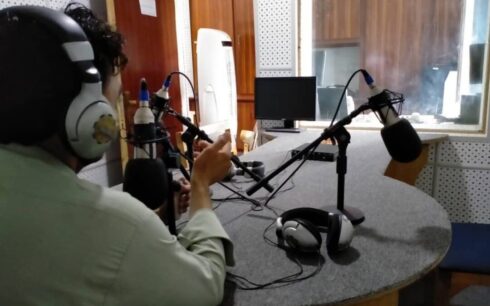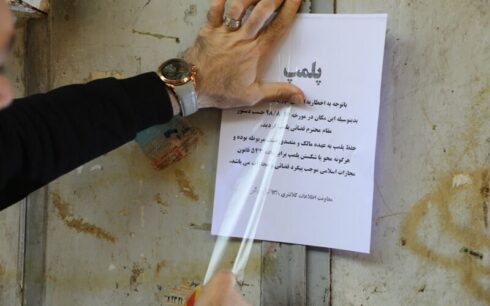Amid decades of turmoil and countless painful days in Afghanistan, August 15 stands as a uniquely bitter anniversary. It’s a day etched into the memory of many—impossible to forget, avoid, or silence. Each person has their own story, a personal ordeal linked to that date. For some, it marks the end of an era: a halt to progress in women’s rights, freedoms, press independence, and, above all, democracy. For a few, it’s viewed as a victory.
But there’s also a group that chooses to move on, to refrain from speaking about August 15, to avoid mourning what transpired on that day and beyond.
For me, as a journalist and someone who spent the prime years of his life during those two decades of transformation in Afghanistan, August 15 is the most painful experience I’ve ever faced. I will never stop speaking, thinking, or writing about it. It has fundamentally altered the course of my life, separating me from my family, my colleagues, my job, and my homeland.
I still have nightmares from that day—August 15. Since then, I have never managed to return to a normal life. The bitter moments from that week continue to haunt me every minute. Imagine suddenly leaving your parents, brothers, nephews, and your room filled with favorite books and memories of friends. For me, August 15 was doomsday. I am not exaggerating. How can I stop thinking about it? I was thrust into a life I never anticipated, one that is nothing like I expected.
The chaos outside Kabul Airport, the crowds, the Taliban firing into the air, the terrifying faces of their fighters, the hopelessness on the faces of tens of thousands of people—people who were roaming outside the airport, desperate to get in, without knowing where they might end up—these are images I can never forget. I was one of them. I will always remember the man who shouted my name, begging me to tell a group of foreign soldiers his name so he could be moved across the dirt canal to be airlifted. I will never forgive myself for not being able to help him. That moment haunts me, keeping me awake at night, wondering what became of that young man. I was so disoriented that I didn’t know if I was dead or alive. For three days, I didn’t eat anything except water.
An era was leaving Afghanistan that day. How can we remain indifferent? I will never forget those moments—I cannot, even if I wanted to.
I met a fifth-year medical student who also fled Afghanistan after August 15. “I’m facing a totally uncertain future right now. I’ve lost all sense of normalcy,” said Maryam Rahimi, an exiled Afghan in France. “August 15 is the darkest day of my life.”
As long as we remain tied to August 15, we remain relevant. We can continue to think about the country and the 40 million people trapped under tyrannical rule, enduring the suffocating restrictions on their rights and freedoms, especially women and girls. Many speak of leaving the country or awaiting the approval of an immigration case by a Western nation. But that’s not a viable solution.
A small group, which I mentioned earlier, seems to be gradually distancing itself from such thoughts about what happened in Afghanistan three years ago. They believe that moving on is a better option. They might have their reasons, but it appears they are finding comfort in the trappings of a new, more luxurious life, with opportunities and significant incomes. That, too, is not an option.
I’ve also noticed a shift in the way exiled Afghan journalists and media workers are treated by relevant institutions. Over the past three years, their relevance—and the attention paid to them—has waned. In December 2023, I attended a forum of journalists in Berlin. Two generations of exiled media workers were present. The first generation had fled in the late 1980s when a Soviet-backed government collapsed. Their stories of exile mirrored our own, but they made a critical mistake—the same one I mentioned earlier. They gradually distanced themselves from thinking about the day that changed their lives, making themselves irrelevant to both their country and their people.
August 15 also robbed us of our identity, our achievements, and our peace. The only way to regain our identity, fight for those achievements, and find a sense of calm is to stay connected to this day. We must speak about it, analyze it from different perspectives, learn from it, maintain unity among communities capable of making a difference—like journalists and media workers—and focus on future strategies that can make us stronger. Otherwise, we risk becoming an irrelevant community, and the people in Afghanistan will lose a platform for raising their voices, while extremism, terrorism, and radicalism will only strengthen their hold on Afghanistan.
Call it emotion or inexperience, but I will always advocate for this—just as the brave women in Afghanistan continue to fight for their rights, no matter how difficult the struggle has been.
International organizations, especially those supporting the media, should strengthen their programs and events for Afghan journalists and media workers in exile. More stories need to be heard and told. More events need to be held to keep the flame alive and, with it, the spirit of holding on to our identities, and to what can lead us to a brighter future.
Siyar Sirat is a journalist with experience in various media organizations in Afghanistan. He has been living in exile for three years.
The opinions expressed are solely those of the author and do not necessarily represent the views of the Amu website.





